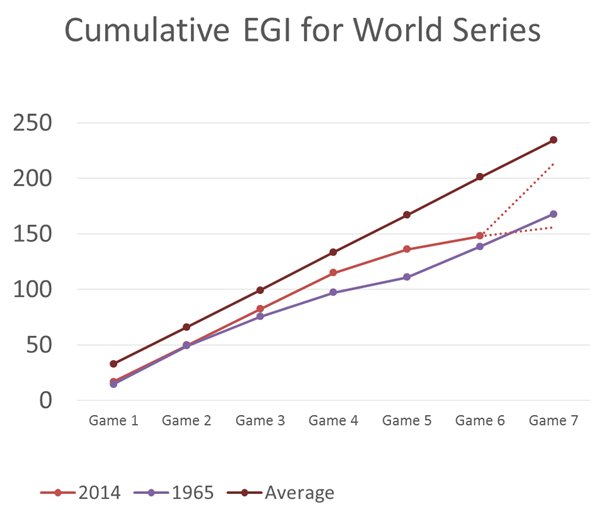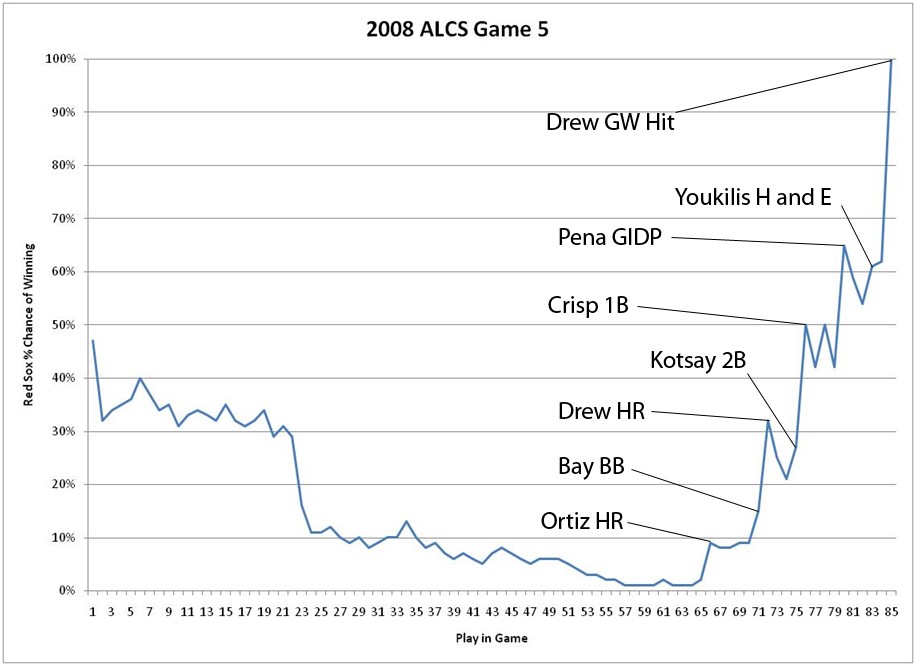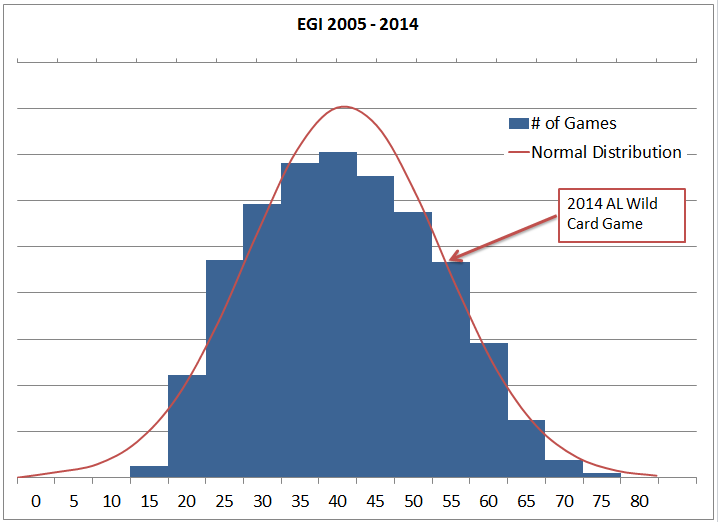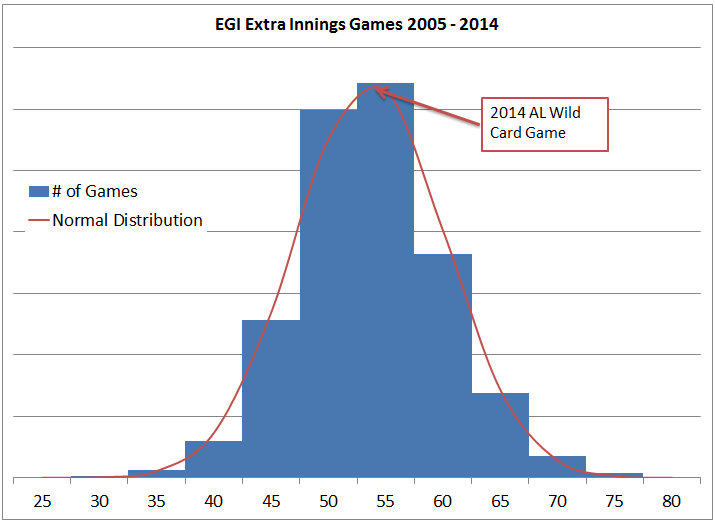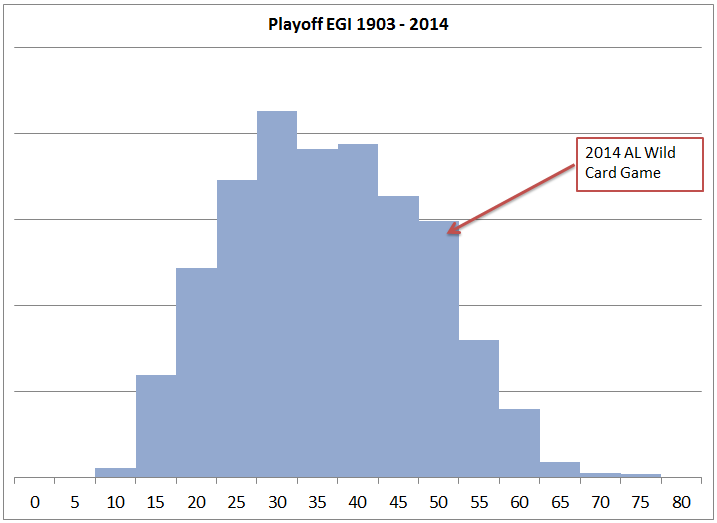7 Games, 0 Drama
A Game 7 is the most exciting thing in sports–the ultimate in win-or-go-home, do-or-die intrigue. A seven game series with no drama is like a Shakespeare play with no drama, and yet somehow the Giants and Royals are on the verge of providing just that.
Discussions of Madison Bumgarner’s brilliance, of Yordano Ventura’s unheralded dominance (2-0, 12 1/3 innings pitched, 2 earned runs), of the whether this’ll be KC’s Cinderella Year or the third installment of San Francisco’s Grover Cleveland-ish non-consecutive championship run are all great, but the games themselves? Not so much. After Game 5, we concluded that this was on pace to be the most boring six or seven game series ever, as measured by the Exciting Game Index. After last night’s 10-0 snoozer, with an EGI of 11.90, the 2014 World Series is one marginal game away from being the least exciting 7-game World Series of all time.
Game 6 was the least exciting World Series game in 46 years, and 6th least exciting World Series game ever.
| Year | Game |
EGI |
Comments |
| 1960 | Game 3 | 8.71 | Yankees scored 6 in the first against the Pirates as Vinegar Mizell only recorded one out in the shortest start in World Series history. |
| 1959 | Game 1 | 9.46 | White Sox jumped out to an 11-0 lead by the 4th and crushed the Dodgers in the opening game. |
| 1967 | Game 4 | 10.42 | Cardinals score 4 in the first and Bob Gibson throws a complete game shutout against the Red Sox. |
| 1923 | Game 5 | 11.35 | Yankees score 7 in the first two innings to roll over the Giants. |
| 1968 | Game 6 | 11.36 | Tigers score 10 in the 3rd and beat the Cardinals 13-1. |
| 2014 | Game 6 | 11.90 | Last night’s game. |
Across all World Series, the cumulative scores range from 80 – 310. The 2014 World Series is currently at 148, which is 46 points below average. Because there’s only one game left in the 2014 World Series, Game 7 would have to be significantly above average, roughly on par with this 12-inning Game 4 from 2003, just to be an above average World Series. But that’s considering all World Series, even ones that only last 4, 5, and 6 games. When only comparing to other 7-game World Series, the 2014 has a chance to be the worst. More stunning, in order to become an average 7-game World Series, tonight’s Game 7 would have to be the most exciting game ever played in playoff history. Even if an exhilarating Game 7 materializes, the 2014 World Series will likely rank in the bottom-10 of 7-game World Series.
| Year | Number of Games |
Cumulative EGI |
| 2014 | 6+ | 147.97+ |
| 1965 | 7 | 167.76 |
| 1968 | 7 | 167.78 |
| 1967 | 7 | 177.96 |
| 1945 | 7 | 184.49 |
The 1965 series featured amazing pitching from both sides, just never on the same day. Koufax and Kaat matched up three times, including in Game 7 on two days’ rest. Koufax’s bullpen let him down in Game 2, and Kaat couldn’t get past the 3rd inning in Game 5 or 7. In all of the games, the eventual winning run was scored by the 6th inning, and in six of the games, it was scored by the 4th inning. In every game, the winning team’s starting pitcher threw a complete game, with no situations requiring the use of their bullpen.
There’s only about a 13% chance that this World Series ends as less exciting than the 1965 Series. The chart below illustrates the range of possibilities for 2014, compared to 1965. The high end shows what would happen if the Royals and Giants teamed up to play the most exciting game in World Series history.
